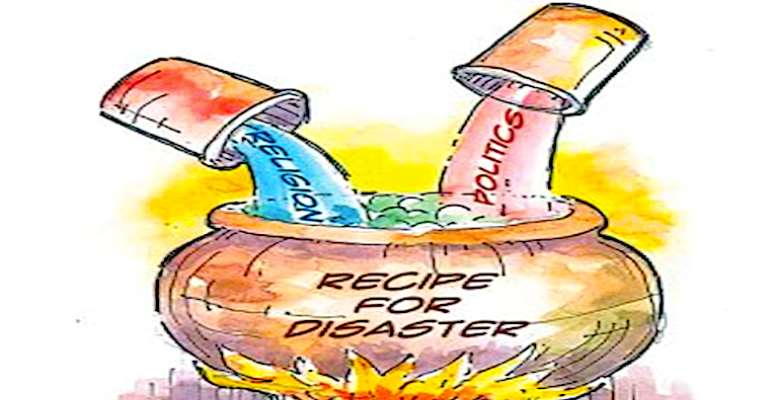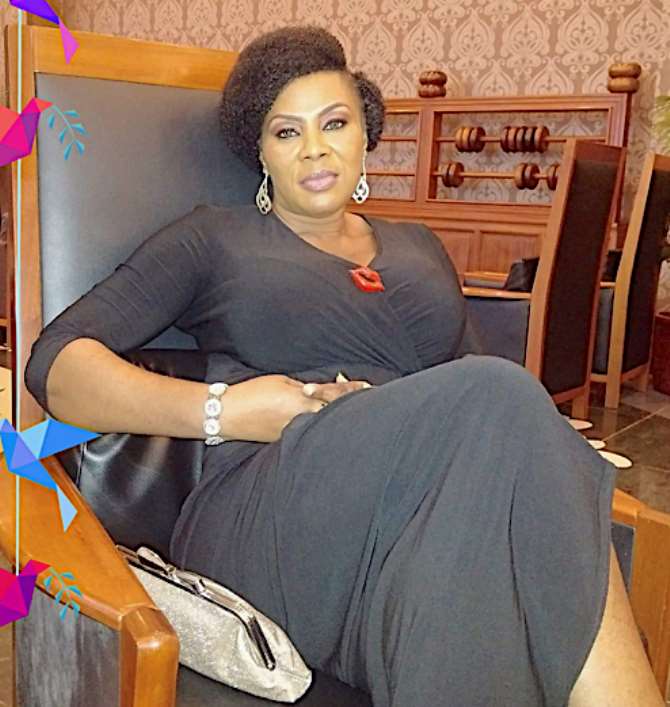2023: Indvisability Of Mixing Religion And Politics

It won’t be exaggerative in this context to say that since the sensibilities of Nigerians was hurt by the collective ambition of a select few that have unarguably made up their mind to selfishly begin to fan the ember of religion as it is obvious that they have thrown caution to the wind by resorting to the Muslim/Muslim ticket ahead of the 2023 presidential election that the social media has been buzzing with all sorts of discussions that exude trepidation.
However, ostensibly inspired by the foreboding atmosphere, what readily came to my mind was a timely warning conveyed through a write-up to Nigerians by a Sierra Leonean whose name is Omar Bangura, few years ago. Then he warned Nigerians to eschew fanning the ember of religion as it is suicidal based on his experience as a Sierra Leonean who witnessed the devastating impact of war in his country back then.
His write-up which virally trended on social media platforms around 2017 and 2018 or thereabout reads, "I don't think you guys know what you are playing with. You can call each other names and laugh about it now but when you end up inciting hate here as I read through your posts here and a real civil war starts in your country you will regret what you are doing now. Your religious and political leaders are trying to divide you between religious lines and you are helping them do that rather than standing up and say we are all Nigerians never mind our tribe, region or religion. That's the only stand that will save your blessed nation. The foreign powers pushing the government to take certain decisions will abandon you when you start killing one another and reject you from running to their countries so be careful. Our 11 year war in Sierra Leone was not even based on religious or tribal difference and see what we did to our country. The worst conflicts are those based on tribal and religious differences. See Central Africa, Bosnia, South Sudan and Rwanda. To have a better knowledge of this, please watch the documentary/movie called "Hotel Rwanda" or “Sometime in April". My heart bleeds when I read what you guys are saying because I know what this will lead to. You will be the losers all of you whether Christian, Muslim, Igbo, Yoruba or Hausa. Stand as one and save your nation together because you have only one Nigeria that has the potential to lead Africa."
Considering the height of absurdity to which politics and religion have so far been mixed in Nigeria, particularly ahead of the much expected 2023 presidential election, there is no denying the fact that Nigerians are witnessing a kind of reverse trend in progressive development in politics and society, which is clearly against the tenets of modernization theories.
In fact, the recent choice of Senator Kashim Shettima by the presidential standard bearer of the ruling All Progressives Congress (APC), Asiwaju Bola Ahmed Tinubu, is a case of antithesis of the modernization theory. This is not an isolated case though as it has been seen ahead of each passing general election in Nigeria. Instances abound where Muslim-Muslim ticket have being made, particularly at State level, since 1999 when Nigeria adopted democratic system of government.
At this stage of our political development, the salient question which every Nigerian should be asking is why would any aspiring politician resort to playing religious card ahead of an election when such politician is been looked up to tell Nigerians how he is going to engender peace and unity when elected? But alas! It is paradoxical that what such aspirant is demonstrating is the business of factoring religion into his campaign strategy to the detriment of the peace and unity of Nigerians? Without any iota of exaggeration, it needs no mention that there is also a growing interest among other politicians and their supporters to factor religion; either Christianity or Islam into their campaign machineries. It is surprising that despite the threat which the mixture of religion and politics poses to the peace and unity of Nigerians that there are also some Nigerians who are vehemently defending the political arrangement saying there is nothing wrong with it.
It will also be relevant to analyze how some politicians are subtly influencing voters ahead of the oncoming general election, and convincing them to support their party. Examining speeches, interviews and comments on both conventional and social media platforms, it appears there are some Netizens, ostensibly been driven by personal ambition, and on that note they are poised to polarize the country along Muslims and non-Muslims lines.
It is expedient to ask at this nexus, “Why is religion been mixed with politics?” “Why is God’s name being dragged into unnecessary political drama to the extent that the candidness and integrity of 30 Bishops that graced the introduction of Senator Kashim Shettima as the running mate to the presidential standard bearer of the ruling APC, Bola Ahmed Tinubu is still been questioned by not few Nigerians?” “Why can’t political party exist without hypocritically laundering its corporate image with God’s name?” As if the foregoing questions are not enough in this context, it is expedient to ask again, “Why can’t politicians take religion as a personal matter instead of wielding it as a weapon that is capable of disuniting Nigerians along religious line?”
If I may ask, “Have politicians forgotten that Nigeria is constitutionally a secular state?” Then, if the foregoing question is answered in the affirmative, it goes to say that secularism is the principle of separation of the state from religious institutions. Seen from this prism, it is therefore not erroneous to say that Nigeria is constitutionally a secular state with its own characteristics of religious tolerance, liberty and equality. In fact, religious tolerance is a key element in the concept of Nigerian secularism
There is no denying the fact that since the issue of Muslim/Muslim ticket became a controversial that not few Christians; even some Muslims who the ticket seemingly favored, prefer to see their political leader who holds the highest post of the country to be neutral and impartial to everyone and not to prefer any of particular religion or sect openly. Not few are asking, “When religious leaders are already there to preach religion, why are political leaders interfering? Without sounding atheistic, mixing religion with politics is a dangerous trend because religious attitude is absolutely opposed to democracy. Fundamentally put in this context, religious interference by the government encourages fanaticism and suspends people’s power of reasoning.
In fact, when religious places that ought to make members of the congregation better people are brainwashed with political propaganda, ostensibly for the fact that the clerics in such hallowed places have sold their souls to the devil by hobnobbing with politicians, even to the extent of exciting the religious sentiments of their congregates to gain political advantage for political jobbers, it means our ongoing democracy is been jeopardized. There is no doubt that the emergence of religion-political party will threaten the secular character of Nigeria, and will unarguably be a dangerous trend that would further weaken the already scrawny spirit of unity and brotherhood that exist among Nigerians. If I may ask, “Why can’t political leaders thrive without using religion in their campaign politics?” “Why would politicians go ahead to endorse a particular religion, and by so doing insinuatingly made it to be more preferred and populous?”
Sandra Ijeoma Okoye (Author)

